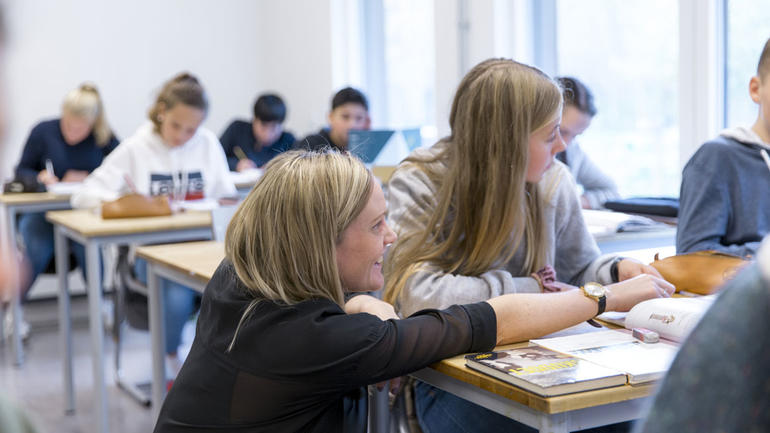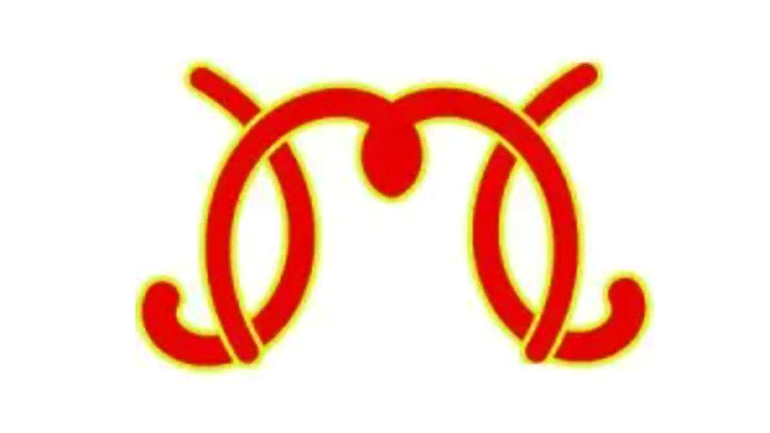View this page in Northern Sámi
Can mathematics contribute to more equality and social justice in school? And can the subject itself be enhanced by the diversity of languages and cultures?
Tensions in classrooms
The MIM research project will investigate how mathematical education develops in multilingual and multicultural classrooms, where different languages and cultures can hinder, support or challenge learning in mathematics education. In particular, we want to look at classrooms with a high number of different languages and cultures, including Norwegian.
Indigenous people have, through colonization, experienced such educational challenges for generations. We also now see similar tensions in classrooms with children and teachers from other minority groups, and tensions are now occurring in Norwegian classrooms.
The backdrop for the research project is that we are living in a time of social change and migration.
Develop strengthening pedagogies
We will find out how classrooms with different languages and cultures influence all students’ learning. Through analysis of positive experiences, expressed by individuals and groups in their own stories, their strengths and resources will be identified. Based on this, we will develop what is called strengthening pedagogies, and explore educational opportunities - first in Norway, and then connect it to parallel research in Canada and the United States.
Will work in partnership
Voices of students and teachers
Publications:
Journal articles
Published:
- Andersson, A.; Foyn, T.; Simensen, A.M.; Wagner, D. (2023). Storylines in Voices of Frustration: Implications for Mathematics Teacher Education in Changing Times. Education Sciences.
- Andersson, A., Ryan, U., Herbel-Eisenmann, B., Huru, H. L., Wagner, D. (2022). Storylines in public news media about mathematics education and minoritized students. Educational Studies in Mathematics. DOI 10.1007/s10649-022-10161-5.
In revision:
- Huru, H., Andersson, A., & Wagner, D. (resubmitted) “…but you cannot buy the sunset”: Abstraction and detachment. For the Learning of Mathematics.
In progress:
- Simensen, A. M., Vos, P., & Andersson, A. (in progress). Storylines in research about learning opportunities for students considered low achieving in mathematics – a critical literature review. [expected submission date, March 2023]
Book chapters
- Huru, H. L., Ollila, N. M. og Simensen, A. M. (in process). HiCuA-rammeverket: design av matematikkoppgaver med utgangspunkt i tradisjonskunnskap i kvensk og sjøsamisk kultur. I G. Figenchou, S. S. Karlsen og H. C. Pedersen (Red.), Didaktikk for mangfold. Samiske emner i skole og lærerutdanning. Universitetsforlaget.
- Huru, H.L., Andersson, A., & Wagner, D. (accepted for publication). “No, we own the forest like the child owns their mother”: mathematical abstraction and detachment in land-based pedagogies. In Horn-Miller, K., & Kress, M. (ND). Land As Relation: Teaching and Learning through Place, People and Practices. Canadian Scholars Press.
- Andersson, A., & Wagner, D. (2021). Culturally Situated Critical Mathematics Education. In Andersson, A. & Barwell, R. (2021). (Eds.). Applying Critical Mathematics Education (p. 24-46). Leiden, The Netherlands: Brill. doi: https://doi.org/10.1163/9789004465800
Conference proceedings or worksahops etc.
- Abtahi, Y., Andersson, A., Barwell, R., Huru, H., Wagner, D., Chatzi, D., Assaf, F., Suurtamm, C., Herbel-Eisenmann, B., & Kane, R. (2022). Ethical awarenesses arising from data collection in mathematics education at the time of the COVID-19 pandemic. Proceedings of the 12th Congress of European Research in Mathematics Education, Bozen-Bolzano, Italy.
- Andersson, A., Herbel-Eisenmann, B., Huru, H., & Wagner, D. (2020). MIM: Mathematics education responsive to diversity: A Norwegian, Canadian and American research collaboration. Proceedings of the 42nd annual meeting of the North American Chapter of the International Group for the Psychology of Mathematics Education (p. 599-600), Mazatlán, Mexico.
- Andersson, A., Herbel-Eisenmann, B., Huru, H. & Wagner, D. (2022). Principal’s storylines about languages in mathematics class. Proceedings of the 44th annual meeting of the North American Chapter of the International Group for the Psychology of Mathematics Education, in press, St. Louis, USA.
- Andersson, A., Ryan, U., Herbel-Eisenmann, B., Huru, H., & Wagner, D. (2021). Storylines in news media texts: A focus on mathematics education and minoritized groups. Proceedings of the 43rd annual meeting of the North American Chapter of the International Group for the Psychology of Mathematics Education, Philadelphia, USA.
- Burt-Davies, K. & Høyer, K. Storylines about CME-teachings, mathemacy and newly arrived students’ mathematical competence. Mathematics in Indigenous and Migrational Contexts 2022 conference, Alta.
- Pasanha, S. (2022, July). Exploring migrant students' mathematical experiences and storylines. [Poster presentation]. 45th conference of the international group for the Psychology of Mathematics Education, Alicante, Spain. Microsoft Word - Portada-Primeras-Paginas-vol4 (ua.es)
- Pasanha, S. (2022, November). Mathematics is like "iron chickpeas": An upcoming researcher's reflexive storylines. [Paper presentation]. Mathematics Education in Indigenous and migrational context, Alta, Norway.
- Perlander, A. & Sjøberg, M. (2022). Student teachers’ Sense-making of becoming teachers; Identifying Storylines as Sources for Positionings. [Paper presentation]. Mathematics in Indigenous and Migrational Contexts 2022 conference, Alta.
- Ryan, U., Andersson, A., Herbel-Eisenmann, B., Huru, H. L., & Wagner, D. (2021). "Minoritised mathematics students are motivated by gratitude": An analysis of storylines in Norwegian public media. Exploring new ways to connect: Proceedings of the Eleventh International Mathematics Education and Society Conference (Vol. 3, pp. 889–898).
- Simensen, A. M., Huru, H. L., Wagner, D. & Andersson, A. (2022). Constructs and methods for identifying patterns of interaction in mathematics classrooms. In: C. Fernández, S. Llinares, Á. Gutiérrez, & N. Planas (Eds.), Proceedings of the 45th Conference of the International Group for the Psychology of Mathematics Education (pp. 213–214). PME Universidad de Alicante.
- Simensen, A. M., Johannessen, A. M., Huru, H. L. (2022). Collaborative tests in mathematics: Seeking a strength-based approach to assessment in a multicultural context. Mathematics in Indigenous and Migrational Contexts 2022 conference, Alta.
- Sjøberg, M., & Perlander, A. (2022). Science Student Teachers’ sense-making of Research and Development in a short post-master teacher education program. Nordic Education Research Association, Reykjavik, Iceland.
MSc projects
USN:
- Kaja Burt-Davies (2021). «Mathemacy for Democracy - Storylines om matematikkundervisning i lys av Critical Mathematics Education» Masteroppgave Kaja Burt-Davies, 143750.pdf (usn.no)
- Hasse Høyer-Hansen (2021). «Elevers storylines om læring i matematikk: Fortellinger fra et flerkulturelt matematikkklasserom.»
- Oda Kjær Eriksen & Siri Vindal (2022). «Flerspråklighet i klasserommet - Matematikklæreres narrativer og erfaringer fra klasserommet med elever med norsk som andrespråk.»
- Tine Kristiansen (2023). «Vurdering i mangfoldige matematikklasserom: Hva mener minoritetselever vi kan gjøre for en mer rettferdig vurdering i matematikk?»
UiT:
- Elisabeth Wirkola (2022). «Kultur, klass och matematikk»
- Mattis Christiansen (2022). «Anvendelse av modeleringsmodellen ved bedriftsbesøk for elever på 10. trinn»
- Noora Marie Ollila (2022). «Minoriserte kulturer i matematikkopplæringen: Ett kvensk og samisk kultur perspektiv»
- Lisa Broks Mikko (2023). «Identifiserte storylines i nyutdannede læreres erfaringer med tilpasset oppøæring i matematikk.»
Teacher journals, DEMBRA publications and similar
- Burt-Davies, K. & Andersson, A. (2022). Kritisk matematikkundervisning – en vei til demokratisk deltakelse. Dembra.

